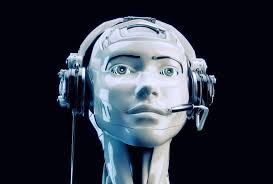This makes Text to speech characters a versatile tool in many applications for needs that go beyond their standard features. These might cover voice, pitch and language adjustments as well emotional tone. For example, Amazon Polly gives users a wide array of over 60 voices in 29 languages that they can install with options for male/female and voice controls such as different accents or speech rates. Such a high level of customization makes sure that TTS characters can be adapted to any audience: whether it is educational content, customer service or entertainment.
Especially when we talk about TTS characters as these social robots can fine-tune the pitch and speed creating natural speech that seems to match a proper message. Slower speech might work better with instructional content, where clarity is beneficial, while a faster rate would be more suitable to punchie marketing materials. Furthermore, simply by increasing or decreasing the pitch of a single voice can create some trustworthiness in one context and more likability in another. By way of example, the company mentions Google's WaveNet technology which allows this same level of control to really ramp up realism that is engaging for end users.
Adding emotional color to TTS characters is another field where customization processes are important. For Example, Microsoft has TTS engine change the emotions of happiness, sadness or urgency in spoken content provided by IBM. The ability to do this is especially important in applications such as interactive storytelling or customer support where the conveyance of a specific emotion carries significant value.
Moreover, this customization is not only technical but can also involve designing new scripts. By creating custom TTS voices that represent their brand, companies can stream a single voice throughout the entire customer experience. Siri on the other hand has a particular tone that is synonymous with Apple, which in turn further reaffirms its brand experience each time someone interacts. MarketsandMarkets has forecast the global text to speech market will expand from $2.0 billion in 2020 to $5..Itoa000 million by 2026, a trend attributed in part as driven by growing interest for tailor-made voice solutions here and elsewhere else within demand types segments.

The significance of personalization on TTS technology is well proven by real world examples. Customized TTS avatars were deployed for translations in different languages with COVID-19 information through governments and health-care organizations to reach a wider class of people during the pandemic. Times like these make us thankful for the investment, as they saved our team time and resources while also keeping consistency in communication during a very stressful situation.
Maya Angelou had it right when she said, “I’ve learned that people will forget what you said; people will forget what you did, but they’ll never forget how you made them feel.” This quotation highlights the emotional aspect of speech, which is well delivered by tailored TTS characters.
Additionally, the effectiveness in customized TTS characters can save businesses a great deal of operational costs. For businesses, this is where voice can be the key to automating those support inquiries we get using a personalized touch so that companies like Comcast and Dish would not have their matter of 15 million customer service calls. It is this level of efficiency which one can see in applications like e-commerce wherein unique TTS characters are implemented to maintain a personalized yet consistent chatbot experience at scale.
All in all, TTS characters themselves provide lots of custom variations and possibilities making it suitable for different requirements with extensive customization options starting from adjusting technical parameters like speeding or pitch to brand-specific voice generation. Such customization not only makes user experience better but also retains the true listener to that spoken content. Visit Text to Speech Characters to dig more on these functionalities